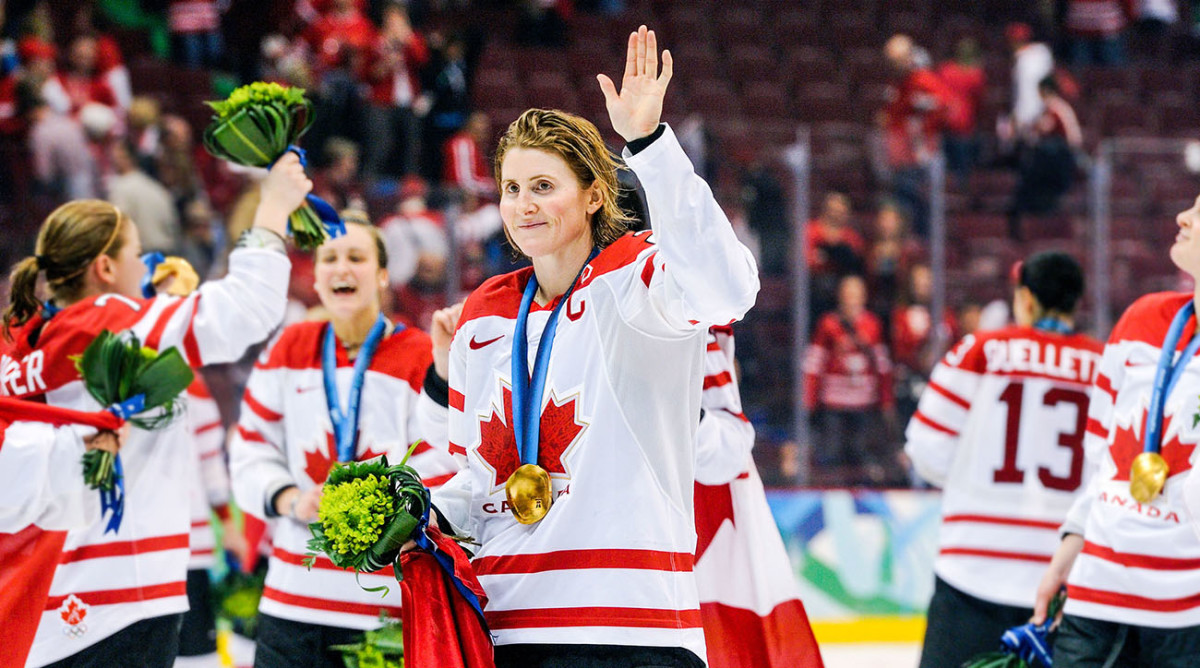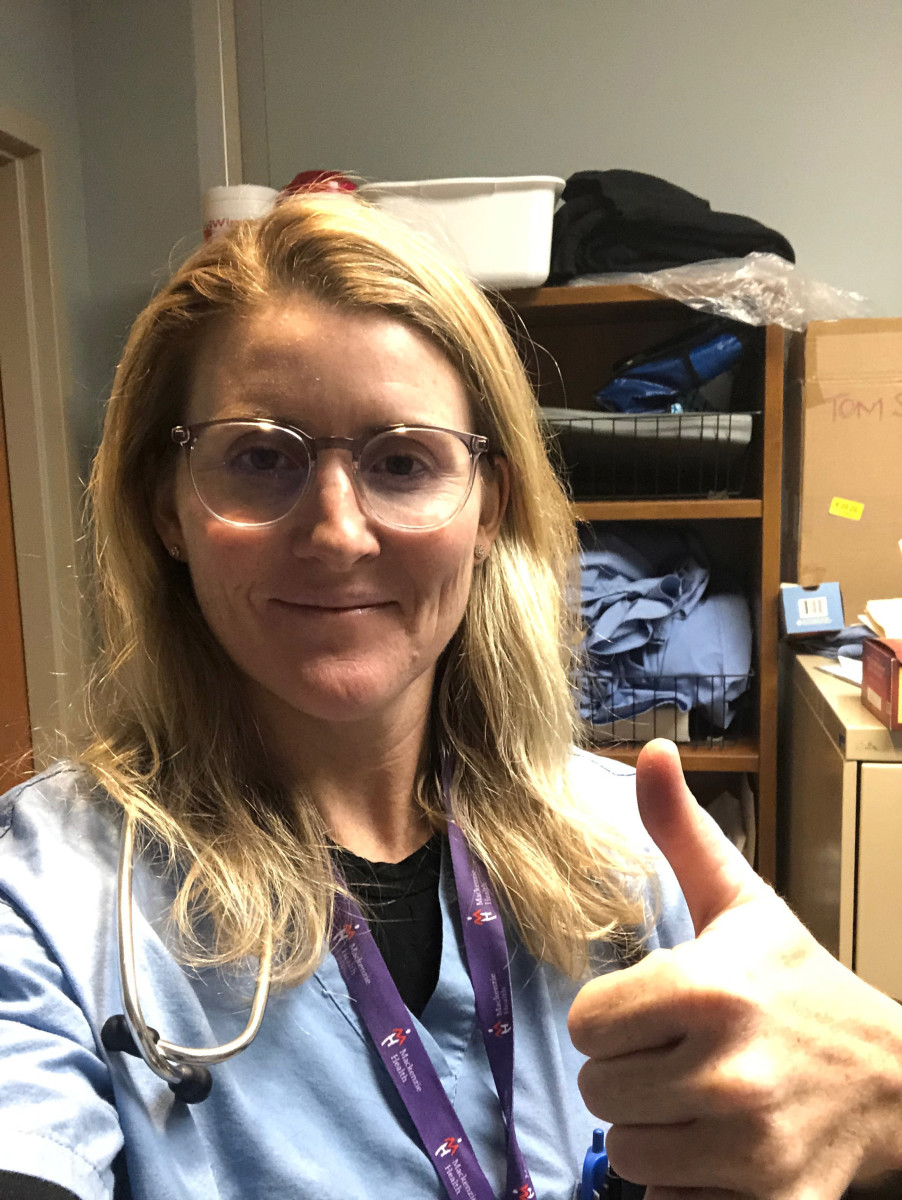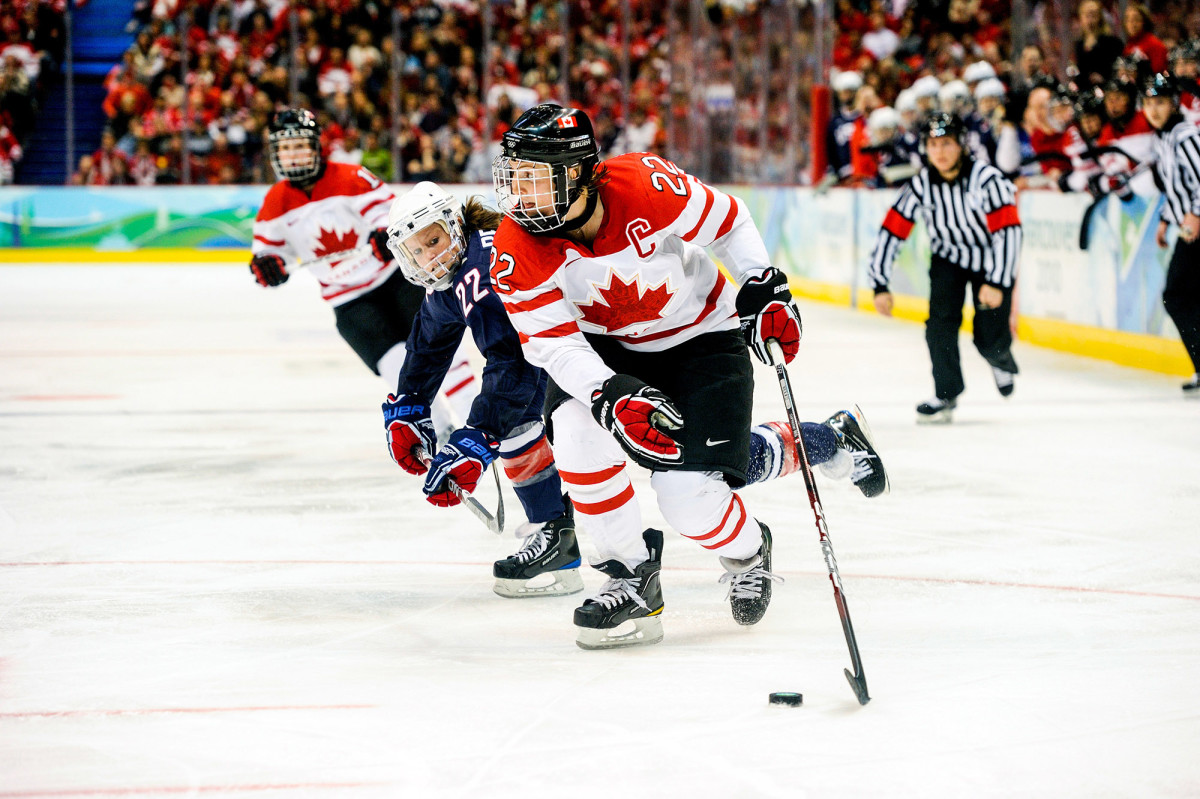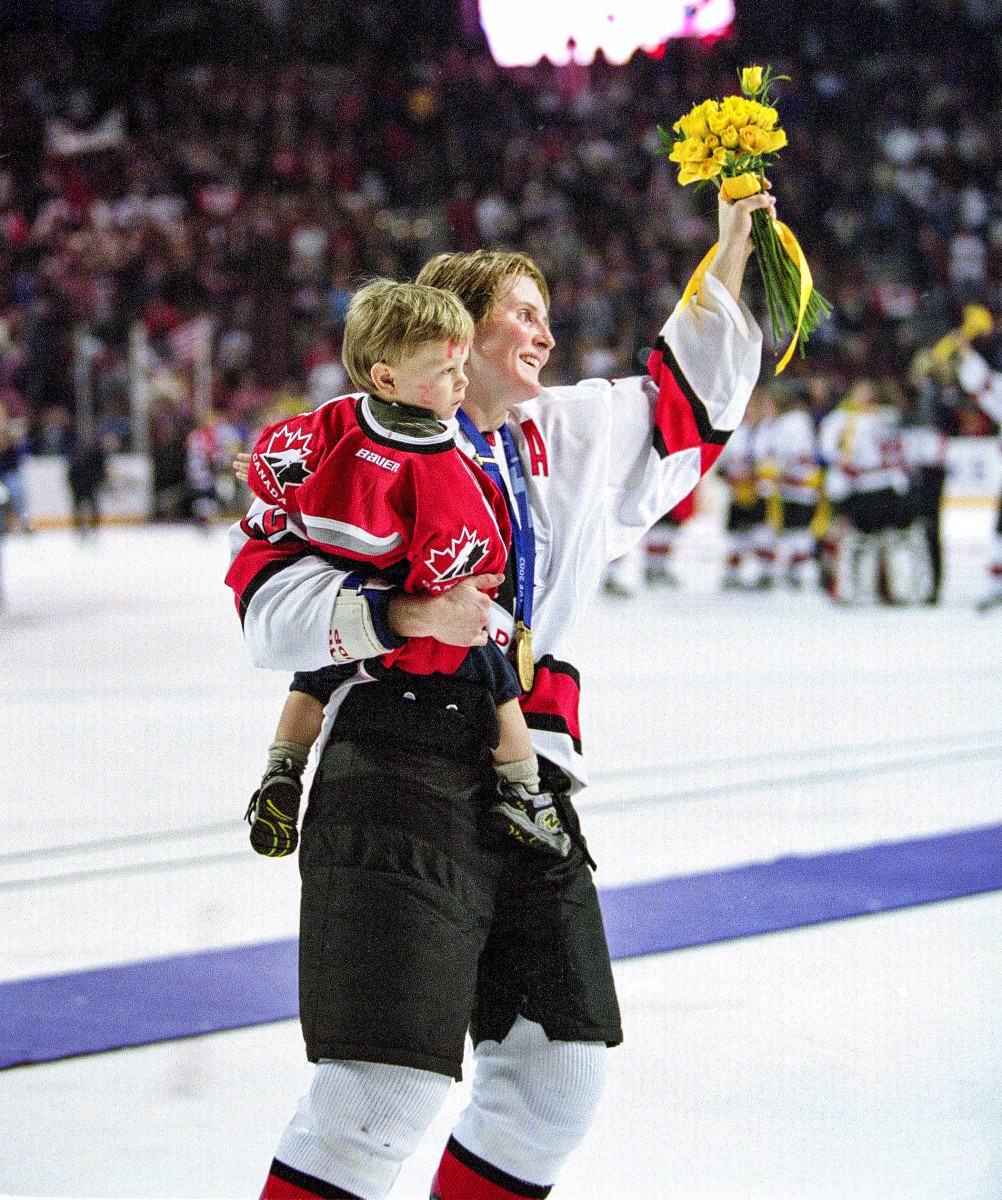Hayley Wickenheiser Is Using Her Unique Platform in Global Fight Against COVID-19
Hayley Wickenheiser climbed Olympic podiums five times in her illustrious career, capturing four gold medals and one silver as Team Canada’s star center before retiring in January 2017 with—at least unofficially—the title of history’s greatest female hockey player. But the 41-year-old took an entirely different sort of stand regarding the Games on March 17.
Wickenheiser is a member of the IOC Athletes’ Commission, a peer-elected board that advises the Olympics’ governing body. She had grown frustrated with IOC president Thomas Bach’s steadfast stance that Tokyo 2020 would continue as planned this summer, even as the coronavirus pandemic shut down nation after nation. And so that day she sent a Twitter missive more sizzling than any wrist shot, urging the IOC to provide some—any—direction to the thousands of athletes suddenly stuck in limbo, their qualifying events canceled and their training centers shut down.

“[I]nsisting this will move ahead, with such conviction, is insensitive and irresponsible given the state of humanity,” Wickenheiser wrote. “We don’t know what’s happening in the next 24 hours, let alone in the next three months.”
The tweet took off and, more importantly, sparked action. Before long prominent organizations including USA Swimming and USA Track & Field issued calls for a postponement, as did the Olympic committees of Brazil, Norway and several other countries. Then, on March 22, Canada became the first nation to declare that its athletes wouldn’t participate this summer out of health concerns due to COVID-19. Two days later, Tokyo 2020 officially became Tokyo 2021.
For Wickenheiser, the postponement announcement was somewhat bittersweet. She sympathized with her fellow Olympians, whose dreams were now delayed. But she also felt a sense of relief—that the IOC had made a decision, that her message had taken hold. Says Wickenheiser, “I couldn’t sit silently anymore, given what I was seeing in the emergency rooms and hearing from my friends in hospitals across the country.”
Several months earlier, when the disease had barely spread beyond China and life in Canada hummed along at its usual clip, Wickenheiser’s attitude toward the coronavirus was far from urgent. An aspiring emergency room doctor in her final year of medical school, she began working on rotation at four Toronto-area hospitals. “I saw a shift from thinking this will blow over, everything will be O.K.,” she says, “to a scenario where it was a little bit more panic.”

Wickenheiser hasn’t treated any COVID-19 patients; a directive from her program at the University of Calgary prohibits trainees from doing so. But she has witnessed the front-line fight nonetheless, watching doctors handle suspected cases inside isolated negative-pressure rooms. The day before her Olympics tweet, for instance, she observed an airline pilot in his late 30s, with no underlying health conditions, enter respiratory distress and receive intubation after at least one coronavirus-positive patient flew on his plane.
Seeing the health care community mobilize in the face of such an unprecedented challenge reminded Wickenheiser of what brought her to medicine in the first place. When she was around nine years old, a neighborhood friend in rural Saskatchewan was struck by a grocery delivery truck. “I remember going to the hospital almost every day to visit her,” Wickenheiser recalls. “Seeing how the doctors and nurses cared for her, that’s what inspired me.” Soon young Hayley was fantasizing about playing for the Oilers and attending Harvard Medical School, wearing out a crimson sweater with a giant H until it was virtually reduced to threads.

Even a decades-long hockey career, which included seven world championship golds and a historic stint in a Finnish professional men’s league, couldn’t alter that plan. “Being a female hockey player, you’re not making millions of dollars,” Wickenheiser says. “Got to think about life after sport, right?” After obtaining an undergraduate kinesiology degree and a master’s of science from the University of Calgary, Wickenheiser entered medical school in July 2018.
The next month, she doubled up on her duties by taking a job in the Maple Leafs’ front office, where she helps oversee the team’s prospects as assistant director of player development. And when she was chosen to enter the Hockey Hall of Fame in June 2019, she missed the news-breaking call from selection committee chairman Lanny McDonald. She was tied up in a code-blue simulation, practicing resuscitating a patient in cardiopulmonary arrest.
But nothing could have prepared her—or any health care provider—for the challenge of a lifetime. As the coronavirus case count grew throughout Canada, surpassing 100 on the same day (March 11) that the NBA halted its season, Wickenheiser developed what she describes as “this free-floating anxiety going into the hospital,” even though she wasn’t directly seeing COVID-19 patients. The feeling would persist until she shed her scrubs in the garage of her Toronto home and promptly bolted for the shower, not wanting to risk any contamination inside.
And here, she was hardly alone; just as numerous athletes would soon reach out to express angst over the IOC’s inaction, friends throughout the Canadian medical community began funneling their concerns to Wickenheiser, too, asking her to use her platform. An ER doctor called while driving to pick up spare ventilators from another city. An ICU intensivist lamented that his hospital had only 150 beds when he anticipated needing 2,000. Another health care worker asked Wickenheiser to tweet a public-service plea for nonmedical personnel to stop swiping protective masks, gloves and gowns.
Wickenheiser and her fellow med students remain in coronavirus-induced limbo, having been removed from all acute emergency scenarios in mid-March as an extra precaution. Some trainees were redeployed to help staff call centers. Others were assigned to assist the contact-tracing effort, mapping the spread of infection throughout the country. Still more have simply been helping overwhelmed doctors in any way possible, whether by researching or babysitting. “Whatever they need,” Wickenheiser says.

She’s not in self-quarantine, but she’s staying busy. On top of writing training programs for Leafs prospects, cranking out workouts in her basement gym, hosting Instagram live chats to pass along hockey tips to stir-crazy followers, FaceTiming relatives and dictating notes for her upcoming autobiography—working title: Relentless—Wickenheiser also devotes two to three hours each day to studying medicine.
And she’s still using her voice to help. Her Twitter timeline is speckled with calls to her 73,000-plus followers to curb a national shortage of N95 face masks, to allow reusable respirators in hospitals, to “practice social distancing and stay the [cough] home,” as she said in one video.
“It’s a little crazy right now,” she says. “But the calmer we stay, the more we isolate from each other . . . if we do our part at home and on the front lines, we have a chance to combat this as a mass group of humanity.”
